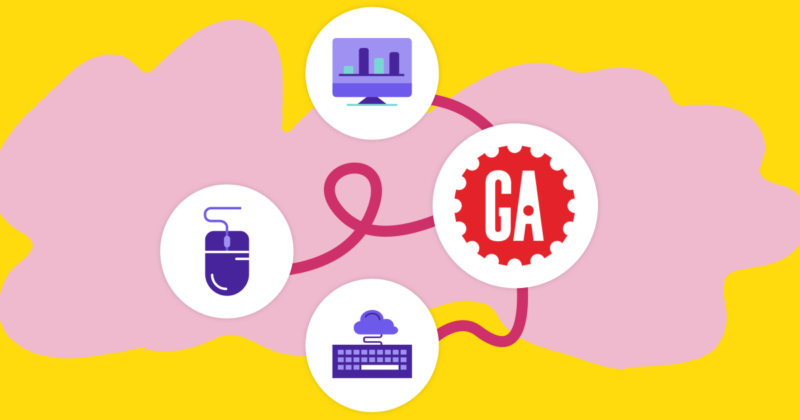
What is Workplace Ageism? (+ 5 Ways to Combat Ageism in the Job Search)
In recent years, organizations across all industries have made strides when it comes to building diverse and inclusive teams. In fact, companies are increasingly hiring and promoting employees from historically underrepresented groups, and they’re also extending offers to more and more women, who now make up the bulk of the US workforce. But despite this progress, there’s still a lot more work to be done, as outlined in Hired’s 2022 Wage Inequality Report.
While organizations might have improved the gender and ethnic diversity of their teams, many are still discriminating in other regards, such as against employees who are further on in their careers. This form of discrimination called ageism.
Related: What is DEI? How Does it Improve the Sales & Tech Job Search Process?
What is ageism?Simply put, ageism is a prejudice causing organizations to overlook qualified older candidates and hire younger workers instead.
According to the AARP, ageism is pervasive in America. They found nearly 25% of workers 45 and older have been the subject of disparaging comments due to their age. What’s more, roughly 60% of older workers have seen or experienced ageism in the workplace. Ageism is perhaps most prevalent in the tech sector, where the average worker is 38 years old (compared to 43 years for non-tech workers).
Add it all up and it comes as no surprise the same AARP survey found 76% of older workers agree ageism is a major obstacle standing in between them and a new job.
Youngism: The Reverse Ageism
This facet of ageism, now increasingly studied, focuses on bias against younger individuals. You might imagine someone muttering, “kids these days” or rolling their eyes as they groan, “millennials.”
Although positive words like “intelligent” and “tech savvy” surfaced, one study found common negative responses in descriptions of younger generations included “entitled,” “coddled,” and “disrespectful.”
In the same way ageism can hold back older adults from opportunities, youngism does the same to younger individuals.
What causes ageism?
Ageism is a bias that makes businesses see older employees as liabilities more than assets.
In an age of technological innovation, companies may think older employees might not be technically proficient enough to work productively. At the same time, older individuals are thought to be stuck in their ways, making it harder for them to embrace change or try something new.
In some instances, ageism might be linked to the fact that older employees tend to earn more than their younger colleagues due to their deeper professional experience. Cash-conscious companies might opt to extend offers for candidates just out of college who are happy to work for less.
While the deck may be stacked against older workers to some extent — all hope is not lost. With the right approach, older professionals can overcome the bias of ageism in the job search, ending up with meaningful employment on the other side.
With all this in mind, let’s take a look at some of the tactics you can employ to navigate your job search in your later years.
How you can combat ageism and be confident in your job searchFirst things first: Update your resume so it fits on one page and is reframed to reflect your current goals. After you’ve done that, it’s time to start looking for work.
Related: How to Handle an Employment Gap on Your Resume (Flip the Script!)
As you begin your job search, here are five tips to keep in mind to help you overcome the challenges associated with ageism — and move forward to the next chapter of your career with a positive mindset.
1. Demonstrate your enthusiasm
At the end of the day, companies are looking to hire energetic, passionate individuals. Perhaps you worked for 25 years in corporate America and have all the requisite skills and experience. Still, if you come across as apathetic or as if you’re just going through the motions, hiring managers may hesitate to gamble on your candidacy.
Instead of reciting your experience, lead with your passion and excitement for the company and role.
We also encourage you to market any mentoring skills. Your experience may be more valuable to other team members than you realize! Frame your experience as an advantage in this way and an opportunity to share your wealth of knowledge.
2. Develop new skills
Commit yourself to continuous learning and always try to develop new skills and learn new things. One easy way to do this is to complete certifications through popular business platforms like General Assembly, Exponent, Educative, and AWS.
3. Be curious and teachable
Succeeding in today’s ultra-collaborative business landscape requires being a team player and a willingness to be flexible. By demonstrating your curiosity and teachability throughout the interview process, you can prove you have the right mindset to become a critical contributor to the team.
Two ways to show your willingness to learn and ability to quickly acquire new skills are:
- Taking up interesting hobbies (e.g., learning how to write code)
- Taking on volunteer opportunities (e.g., mentoring at-risk youth)
4. Lead your interviews
Acing an interview isn’t just about giving good answers to each question. It’s about forming a personal relationship and connection with the person on the other side of the table (or the Zoom call).
By connecting with your interviewer on a deeper level and bringing a positive, pleasant attitude to the session, you can make a great first impression. This can carry you to the finish line and lead to a job offer!
Related: Video Interviews 101: How to Impress in the Digital Age
5. Arm yourself with data
When you’re older, be cognizant of how your interviewer might perceive your age as a disadvantage. So, be prepared to defuse those objections right out of the gate.
Related: 7 Interview Questions You Never Have to Answer (& How You Should Respond)
One way is to proactively bring data to the table. For example, research suggests workers continue building knowledge and expertise well into their 80s — traits correlated with job performance. Furthermore, data suggests the average successful startup founder is 45 years old.
It’s also important to make sure you have a good understanding of what a fair salary is for your experience and role. Make sure you leverage tools like Hired’s Salary Calculator to understand your value before the interview.
Related: What Does Your Tech Salary Look Like? A Review of Salary Trends
The more nuggets of information like this you have, the more confident you will be when you finally sit down at the table.
Ready to land your next job?With the right mindset and a determination to land a new job, it’s possible to overcome the challenges associated with ageism and start the next phase of your career. Keeping these tips in mind as you begin your next job search. Good luck!
Continue reading our Ally Series:
- Should You Disclose a Disability During Your Job Search? The Complete Guide
- How Jobseekers Can Combat Pregnancy Discrimination in the Hiring Process
- Anxiety, Fear of Failure? You’re Not Alone: How to Overcome Imposter Syndrome
Related blog posts

Should You Disclose a Disability During Your Job Search? The Complete Guide
Searching for a new job can be a stressful, anxiety-inducing process for anyone. If you’re one of...

Anxiety, Fear of Failure? You’re Not Alone: How to Overcome Imposter Syndrome
Have you ever felt like you’re way over your head in your career? Or maybe read a job description...

How Jobseekers Can Combat Pregnancy Discrimination in the Hiring Process
Moms are a major part of the workforce at about one-third of employed women. It’s reasonable to...

Thinking About a Career Transition? General Assembly’s 4 Immersive Tech Programs to Help You Pivot
Have you ever considered a career change? Perhaps, you’ve daydreamed about making a transition...

How to Build Leverage in a Volatile Job Market (VIDEO)
Check out a sneak peek of our recent webinar (now on-demand!) to learn how to feel confident...

Common FAQs from Jobseekers: The Importance of Upskilling for Tech Talent (VIDEO)
In the current tech talent pool, candidates are searching for ways to upskill for that competitive...
